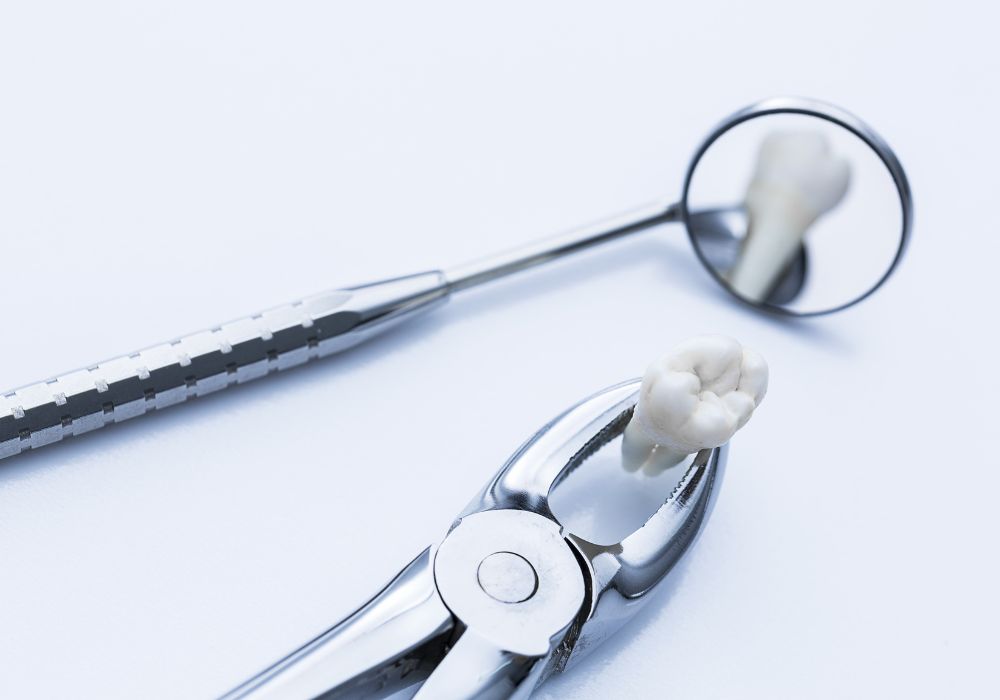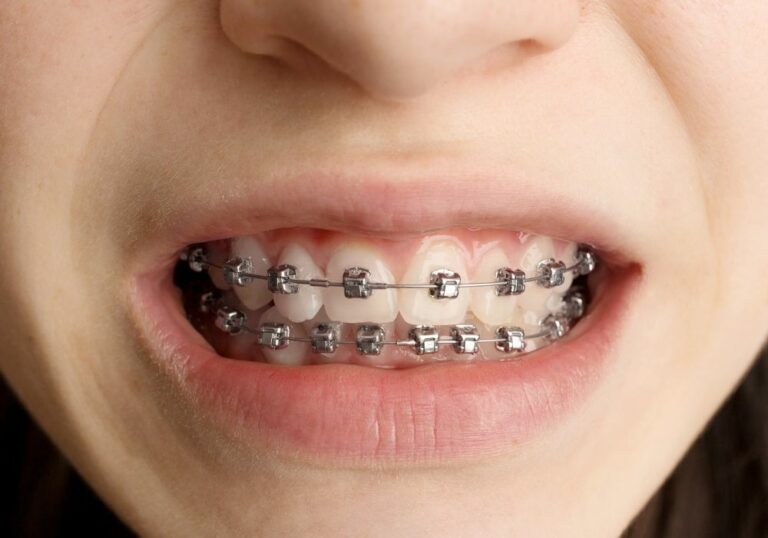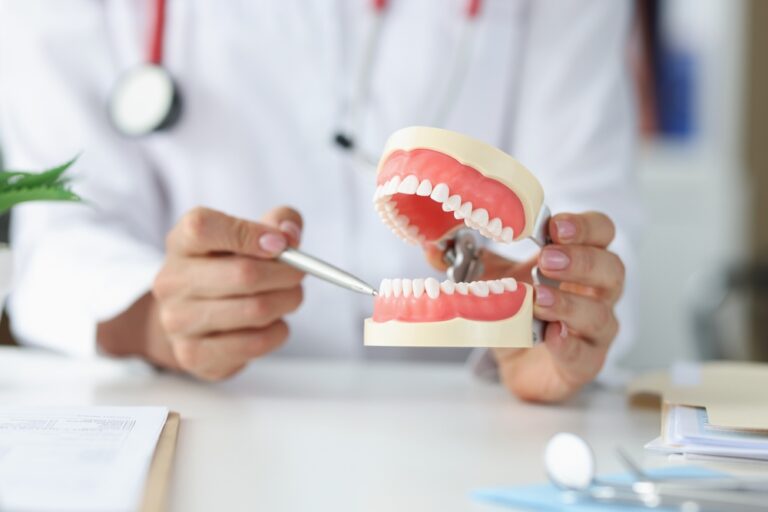Are you experiencing pain or discomfort in your mouth? Have you ever wondered if wisdom teeth can grow in weird places? The answer is yes, wisdom teeth can grow in unusual locations. While the most common location for wisdom teeth is at the back of the mouth, they can also grow in other places, such as the roof of the mouth, the sinuses, and even the cheek.
When wisdom teeth grow in unusual places, they can cause a variety of problems. For example, wisdom teeth that grow in the roof of the mouth can cause pain and discomfort, as well as difficulty eating and speaking. Wisdom teeth that grow in the sinuses can cause sinus infections and other sinus-related problems. In some cases, wisdom teeth that grow in the cheek can cause damage to nearby teeth and gums.
Understanding Wisdom Teeth

What are Wisdom Teeth?
Wisdom teeth, also known as third molars, are the last set of molars that grow in the back of your mouth. They usually emerge between the ages of 17 and 25, but some people may never develop them at all. Most people have four wisdom teeth, one in each corner of their mouth.
Why do Wisdom Teeth Grow?
Scientists believe that wisdom teeth were necessary for our ancient ancestors who had larger jaws and needed the extra molars to help grind up tough, uncooked food. However, as our diets have evolved and become softer, our jaws have become smaller, leaving little space for the wisdom teeth to grow in properly. This can lead to a variety of issues, including impacted wisdom teeth, which can cause pain, infection, and even damage to surrounding teeth and gums.
In some cases, wisdom teeth can also grow in weird places, such as outside of a cheek or in the roof of the mouth. While this is rare, it can cause additional complications and may require surgical removal.
Overall, it’s important to keep an eye on your wisdom teeth and visit your dentist regularly to ensure that they are growing in properly and not causing any issues. If you experience pain, swelling, or other symptoms, be sure to seek professional dental care as soon as possible.
Unusual Growth of Wisdom Teeth
If you think wisdom teeth only grow in the back of your mouth, think again. In some cases, these teeth can grow in unusual places, causing pain and discomfort. Here are two types of unusual growth of wisdom teeth:
Impacted Wisdom Teeth
Impacted wisdom teeth are teeth that don’t have enough room to emerge or develop normally. They can be partially or fully impacted, meaning they are stuck in the jawbone or gum tissue. Impacted wisdom teeth can cause a range of problems, including:
- Pain and swelling in the gums
- Crowding of nearby teeth
- Tooth decay and gum disease
- Cysts and tumors
If you have impacted wisdom teeth, your dentist may recommend removal to prevent further complications.
Ectopic Wisdom Teeth
Ectopic wisdom teeth are teeth that grow in abnormal positions, such as the roof of the mouth, the front of the mouth, or the sinuses. These teeth can cause a range of problems, including:
- Pain and discomfort
- Difficulty chewing and speaking
- Infections and abscesses
- Damage to nearby teeth and structures
In some cases, ectopic wisdom teeth may need to be surgically removed to prevent further complications.
If you suspect you have unusual growth of wisdom teeth, it’s important to see your dentist right away. They can evaluate your teeth and recommend the best course of treatment for your specific situation.
Symptoms of Abnormal Wisdom Teeth Growth

If your wisdom teeth are growing in abnormally, you may experience a range of symptoms. Here are some of the most common symptoms to watch out for:
- Pain: One of the most common symptoms of abnormal wisdom teeth growth is pain in the back of your mouth. This pain can be mild or severe, and it may come and go over time. You may also experience pain in your jaw, neck, or head.
- Swelling: If your wisdom teeth are growing in abnormally, you may notice swelling in your gums, jaw, or face. This swelling can be mild or severe, and it may make it difficult to open your mouth or chew food.
- Bleeding: Another symptom of abnormal wisdom teeth growth is bleeding in your gums. You may notice blood when you brush your teeth or floss, or you may have bleeding gums without any obvious cause.
- Infection: If your wisdom teeth are growing in abnormally, you may be at risk of developing an infection. This can cause a range of symptoms, including fever, chills, and a general feeling of illness.
- Bad breath: Abnormal wisdom teeth growth can also cause bad breath. This is because food particles and bacteria can get trapped in the pockets around your teeth, leading to a foul odor.
If you are experiencing any of these symptoms, it’s important to see a dentist or oral surgeon as soon as possible. They can examine your teeth and gums to determine the cause of your symptoms and recommend the best course of treatment.
Diagnosis and Treatment
How are Abnormal Wisdom Teeth Diagnosed?
If you suspect that your wisdom teeth are growing in abnormally, your dentist will conduct a thorough examination of your mouth. They may take X-rays to get a better view of your teeth and determine their position. This will help them determine if your wisdom teeth are impacted or growing in at an angle.
Treatment Options for Abnormal Wisdom Teeth
If your wisdom teeth are growing in abnormally, your dentist may recommend one of the following treatments:
- Extraction: If your wisdom teeth are causing pain or other problems, your dentist may recommend extracting them. This is a common procedure that involves removing the teeth under local anesthesia. After the procedure, you may experience some swelling and discomfort, but this should subside within a few days.
- Orthodontic Treatment: If your wisdom teeth are causing crowding or other alignment issues, your dentist may recommend orthodontic treatment to correct the problem. This may involve braces or other appliances to move your teeth into the correct position.
- Observation: In some cases, your dentist may recommend simply monitoring your wisdom teeth to see if they cause any problems in the future. This is typically done if your wisdom teeth are not causing any immediate issues and are not likely to cause problems in the future.
It’s important to follow your dentist’s recommendations for treating abnormal wisdom teeth. Ignoring the problem can lead to more serious issues down the line, such as infections or damage to surrounding teeth. If you’re experiencing any pain or discomfort in your mouth, be sure to schedule an appointment with your dentist as soon as possible.
Prevention and Care

Preventing Complications
Preventing complications from wisdom teeth growing in weird places involves regular dental check-ups and monitoring the growth of your teeth. Your dentist will be able to identify any potential issues and recommend the best course of action.
If your wisdom teeth are growing in at an angle or in a weird place, your dentist may recommend removal to prevent complications such as infection, damage to surrounding teeth, or cysts. It is important to follow your dentist’s recommendations to prevent further complications.
Post-Treatment Care
After wisdom teeth removal, it is important to follow your dentist’s post-treatment care instructions to promote healing and prevent infection. Here are some tips to help you care for your mouth after wisdom teeth removal:
- Bite down on gauze for at least 30 minutes to help stop bleeding.
- Apply an ice pack to your face to reduce swelling.
- Avoid smoking and drinking through a straw as these activities can dislodge the blood clot and delay healing.
- Eat soft foods and avoid hard, crunchy, or spicy foods for the first few days.
- Rinse your mouth with salt water to help keep the area clean and promote healing.
- Take pain medication as prescribed by your dentist.
By following these post-treatment care instructions, you can help ensure a smooth recovery and prevent complications.
Frequently Asked Questions
What are the symptoms of wisdom teeth growing in weird places?
Some symptoms of wisdom teeth growing in unusual places include jaw pain, swelling around the jaw, bad breath, an unpleasant taste in your mouth, and difficulty opening your mouth. If you experience any of these symptoms, it is recommended that you see your dentist.
Is it common for wisdom teeth to grow horizontally?
No, it is not common for wisdom teeth to grow horizontally. In fact, horizontally impacted wisdom teeth are quite rare. Most wisdom teeth grow vertically and do not cause any problems.
How can you relieve pain from sideways-growing wisdom teeth?
To relieve pain from sideways-growing wisdom teeth, you can try using over-the-counter pain medication or applying a warm compress to the affected area. It is important to see your dentist if the pain persists or becomes severe.
What is the recovery time for removing horizontally impacted wisdom teeth?
The recovery time for removing horizontally impacted wisdom teeth can vary depending on the individual. Generally, it takes about a week to fully recover from wisdom teeth extraction. Your dentist will provide you with specific post-operative instructions to help speed up the healing process.
Can wisdom teeth grow in hidden or unusual places?
Yes, wisdom teeth can grow in hidden or unusual places. In some cases, they may even grow in the sinuses or jawbone. This is why it is important to have regular dental check-ups and X-rays to monitor the growth and position of your wisdom teeth.
Why do wisdom teeth sometimes grow in unusual directions?
Wisdom teeth sometimes grow in unusual directions due to lack of space in the mouth. This can cause them to grow at an angle, become impacted, or grow in unusual places. Genetics can also play a role in the growth and positioning of wisdom teeth.







